By Gino Ng
Trainers, coaches and of course physios have, for the longest time, asked both elite athletes and patients to stretch, whether it is for rehabilitation or improved performance.
Do physios, coaches and trainers advise out of habit, outdated beliefs or current best practice?
In this day and age, we want everything to be based on evidence. But are there any evidence-based benefits of stretching? Does stretching help prevent exercise-related injury?
The articles discussed by Shrier (2004) and Weldon and Hill (2003) are both systematic reviews. (A systematic review is a computer-aided search for ALL randomized & controlled clinical trials, meaning it’s top of the pile in terms of quality).
With regards to improving performance, here’s the evidence. In Shrier’s review paper, only one article suggested running economy (running more efficiently) was improved. Four articles studied running speed or sprinting, with one study being beneficial, one detrimental while two were inconclusive.
The paper concluded that stretching does not help to improve maximum strength or how high you can jump. There is some evidence however, to suggest that regular stretching performed outside of the pre-exercise period (and not stretching before exercise) improves strength, jump height and sprinting.
In fact, a few studies actually show that stretching before exercise has actually shown to increase your chance of sustaining an injury. Especially so if you are an endurance athlete with reduced flexibility.
The evidence also suggests that stretching immediately prior to exercise is detrimental to activities that require isolated force or power. There is also insufficient evidence to show that it helps with running economy (running more efficiently).
Not quite what you expected, right? Do we still stretch or not?
Here’s my opinion based on my work and observations with our athletes and patients.
1. Minimize pre-exercise static stretching since it hinders power and maximum strength.
2. Do your pre-game or exercise warmup with movements that simulate your sport.
3. Stretch after exercise or at a time not related to exercise since regular stretching helps.
References
Shrier, I. (2004). Does Stretching Improve Performance? A Systematic and Critical Review of the Literature. Clinical Journal of Sports Medicine. 14(5) p 267-273.
Wendon, SM and Hill, RH. (2003). The Efficacy of Stretching for Prevention of Exercise-related injury: A Systematic Review of the literature. Manual Therapy. 8(3) p 141-150
About Gino Ng
Prior to joining Physio Solutions, Gino Ng worked as a senior sports physiotherapist at the Singapore Sports Council (SSC) from 1999-2009. He graduated with a double masters in Musculoskeletal and Sports Physiotherapy from the University of South Australia on a SSC sponsorship.
His special interests are in the treatment of articular cartilage injuries having done research in the area whilst undergoing his postgraduate training. He specializes in treating sports injuries, as well as devising sports rehabilitation programmes after reconstructive surgeries to the shoulder, knee and ankle joints.
As a former national triathlete, Gino is a 2-time Singapore National Triathlon champion (2000-2001), National Duathlon champion (2001), 9-time winner of the National Vertical Marathon (1998-2001, 2004-2005, 2007-2009). He has also placed 4th at the 2001 Asian Duathlon Championships in Hong Kong and made several podium finishes in the Asian Cup Triathlon Series events over the years while holding down a full-time job as a physiotherapist.
Partly as a result of his grueling training regime, Gino needed 3 knee surgeries in 2002 and 2003. After which he made a comeback and placed 4th in the 2005 SEA Games triathlon event.
When not participating, Gino has kept close to sports, travelling widely with the Singapore medical teams for major overseas events such as the various SEA Games, 2002, 2006 Commonwealth Games, the 2006 Asian Games and he is the only local Singaporean physiotherapist to be been to both the 2004 Athens and 2008 Beijing Olympics.

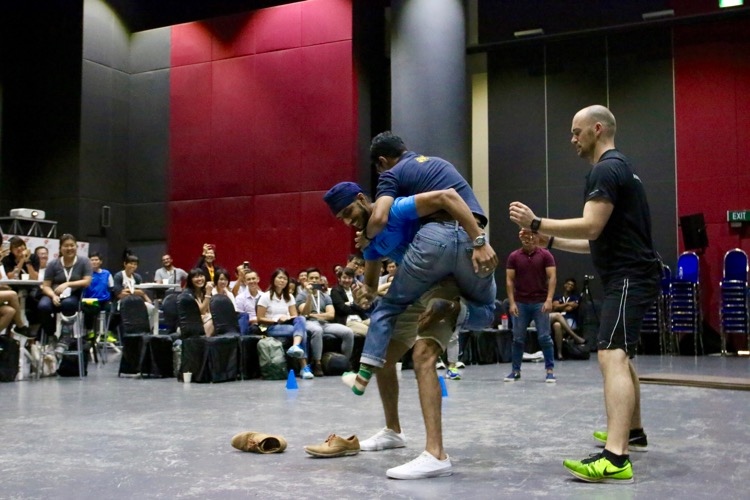

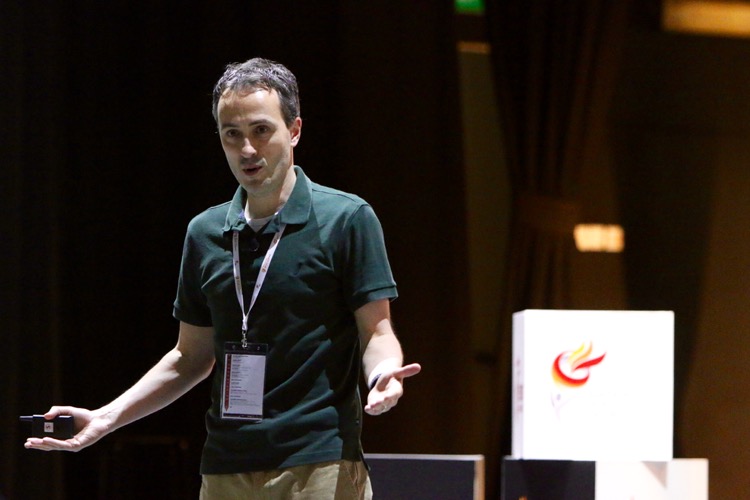
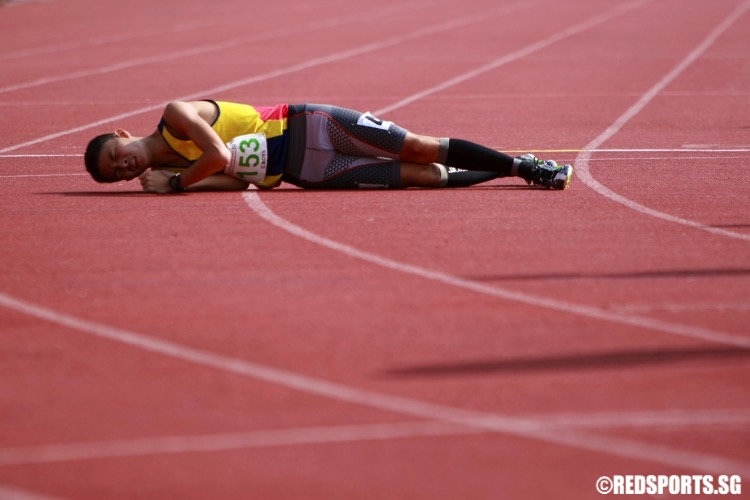
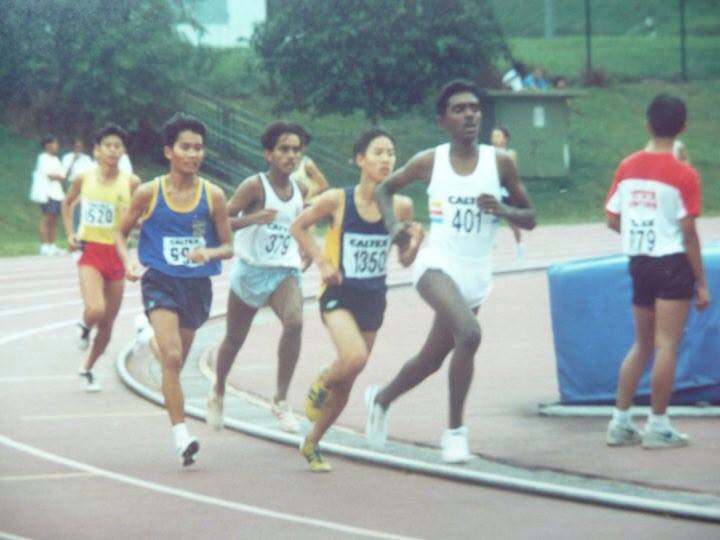
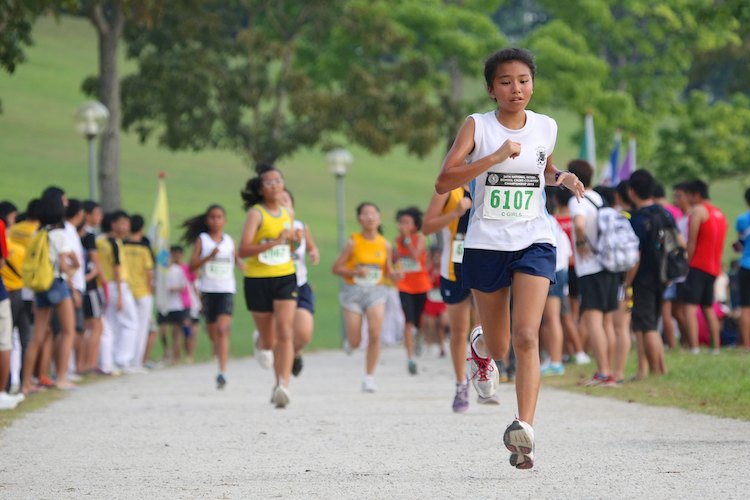
Thanks Gino. (:
Hi HM,
there is some evidence to show that stretching straight up (or “cold” as you say) may lead to injuries. After some aerobic exercise (cycling,running etc) there is more blood flowing through the muscles and hence the muscles feel “warmed up”. That may explain why it is easier to stretch after exercise/ training than before exercise. As long as you do not do static stretching before exercise it should be fine to stretch daily with no warm up. Start gently, and as your muscles have more range of motion you will get the benefits.
Hope this answer your queries.
gino
Hi Gino Ng,
Is it all right to stretch cold muscles? I read an article and it said that by doing so, I may harm my muscles. In the article it said that a jog or warming up the muscles before stretching would be a better choice. I was wondering if I were to stretch daily, would I need to go for a jog before stretching or is it all right to stretch without warming up my muslces?